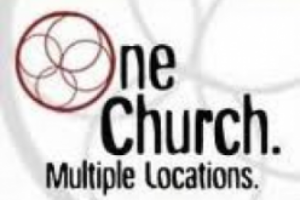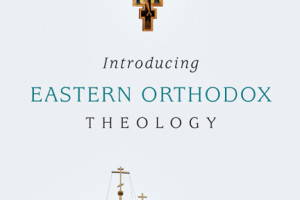For those of you who dabble in the circles of theology and modern celebrity pastor culture, you quickly find out how it’s “circles” work. First, after learning about all the major teachers, pastor’s or theologians who are heroes in your circles, you start learning about which leaders and figures are loved and claimed by “other” circles. You also quickly learn how warm the communication is (or isn’t) between people of different groups. For example, MacArthurites tend to have great fellowship with many modern Reformed authors (CJ Mahaney, RC Sproul, etc)… that is, until millennial views show up. Piper-its and Keller-ites are pretty large and amiable groups… but probably would have some long, crucial conversations of dissenting opinion with Rod Bell-ians, or Brian McLaren-lovers. In general, group boundaries help us determine our own identities, and help us navigate the plethora of opinions that exist in the ocean that is Christian Theology. Identifying circles gives us clarity, it gives us boundaries, and it gives us reference for discussion and identification. Most of us, also, tend to be pretty careful with managing which “circles” we would associate ourselves with (because, as we know, having a reputation with the wrong people could have a serve consequence on your rapport with others!). In general, I would say most tend to make considerable effort to distance themselves from some circles… and are rather comfortable aligning with others. A blog post could be written on the subject of unity amidst such diversity, and of balancing harmony with “heresy” or orthodoxy. For anyone wondering, is not that post. This post takes that awareness that we tend to be attentive guardians of our identities and reputations, and challenges (especially the seminary trained) to be extra careful of who you might let slip into your little group. And sometimes, it’s important to step back, and remember who you keep company with. I ask this because, unbeknownst to many, one of the most highly regarded and utilized reference work in the field of New Testament studies (especially among evangelically educated teachers and scholars) is actually the fruit of one of the darkest, saddest, and most taboo-“circles” in history. I’m talking about every Greek student’s chief reference work, Gerhard Kittel’s Theologisches Worterbuch zum Neuen Testament, or better recognized in English as the Theological Dictionary of the New Testament (TDNT). This massive ten volume work, although now almost eighty years old, is still considered by many to be the standard for any Greek word studies. But, what many may not know, is that reading the writings of any post-reformation German theologian does just mean you might have to be on the lookout for liberal-critical pre-suppositions. In fact, you are actually reading the fruit of the best of Third Reich Theology. The series editor, Gerhard Kittel, published the first volume of this work in 1933… the very same year he also published his tractate Die Judenfrage (best translated “The Jew-Question,” or more accurately “The Jewish-Problem”)… and the very same year Kittel joined the Nazi party. And Kittel isn’t alone: K.G. Kuhn, one of the major contributors to the dictionary, was not only a supporter of Hilter’s government at large, he was an supporter of the SS. Both theologians had clear anti-Semitic life-positions, and this influence can be seen in their works, argues Maurice Casey (Emeritus Professor at the University of Nottingham) in a chilling article published in Novum Testamentum in 1999. Several scholars- Geza Vermes and J. S. Vos, have written articles cautioning academians and church leaders against use of this resource, but these voices have been relatively unheard. Could it be that these accusations are guilty of using improper logic, and that the “fallacy of origins” here should not cause us to undermine our use and trust in this resource. Or, do they have a point? And if so, is it possible that we unwittingly invite into our folds the ideologies and the influence of Nazi anti-Semitism itself? For those interested in a read on the subject, I would direct you to Maurice Casey’s “Some Anti-Semitic Assumptions in the Theological Dictionary of the New Testament,” in Novum Testamentum Vol 41.3 (Leiden: Brill, 1999). Ultimately I would say that whenever we read (even those that we trust) we should always read with critical lenses, making sure that what is said is really drawn from the Scriptures or from history itself… and not influenced or mutilated by agendas or presuppositions. And, I would say that the allegiances of some of the authors certainly does not negate the vast majority of their diligent historical and lexical work. Yet, every time I’m reminded of this, it does stir me to thinking about how important it is… not necessarily to think of circles (as I think although sometimes helpful, such thinking can also be quite damaging for the church), but to think critical about what we read, what we support, and what we ingest. Who knows- some of theologies greatest ideas today, might later be clearly shown to be fallacious in the future.
About Tanner Gish
Tanner is a graduate of Biola University (B.A.; B.S.) and Talbot School of Theology (M.A.) and he currently resides in Whittier, CA, serving his community as an assistant branch manager at a commercial bank.
You also might be interested in
Over the course of the next few weeks I’ll be[...]
Louth, Andrew. Introducing Eastern Orthodox Theology. IVP Academic, 2013. 172[...]
I used to believe that all evangelical theologians were a[...]
Recent Comments
-
Hi WP I think AM has a great deal in…
-
Tom Peters on The Genre Studies Gap with Professor Jeannine Brown and Dr. Andy Judd (Podcast) Thank you for this interesting discussion of genre in scripture.…
-
Keren on Amillennialism: Rethinking and Critiquing My Eschatology After Five Years Growing up I just accepted the dispensational view because that's…
-
Tom Peters on The Eschatologies of 1–2 Thessalonians with Dr. Sydney Tooth (Podcast) Congratulations to Dr. Tooth on her forthcoming book, which she…
-
Tom Peters on A Suggestion for Future Commentators on 2 Corinthians Psalm 143:10 (ESV): Let your good Spirit lead me on…





Leave a Reply
Your email is safe with us.